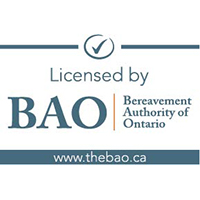“There is no escaping the sorrow, the gaping wound, the death of a loved one can leave in your heart, and in your life. We believe the most important service we provide our families is helping them find a way forward, through their grief, to “the new normal” the world has become. We offer this comfort through a number of ways. Firstly, of course, we do our utmost to provide excellent funeral services. But once the funeral has passed, we offer a range of services to help deal with the loss of the person, through our Bereavement Program. Survivors also have to deal with the inevitable reality that each of us is a legal entity whose affairs need to be concluded after death.”
Coping With Life After Loss
Telephone contact after funeral
A few weeks after a funeral, we call the family to see how they are coping and to offer our support with the grieving process and the logistics of notifications about the death.
Grief counselling
Through our Bereavement Centre, we offer individual and group grief counselling.

Annual Christmas Season Candlelight Services of Remembrance
Each year, we sponsor remembrance services held in churches in our community. They are offered in Portuguese, English and Ukrainian and are open to all.
Messages of Hope
This booklet is mailed every fall to families for whom we have handled a funeral in the previous year. The booklet offers a range of ideas on how to cope with the holiday season, one of the most difficult times in the year for the recently bereaved.
Memorial Tree Program
As an expression of our sympathy to the families who have entrusted their funeral arrangements to Cardinal, we have a tree planted in honour of their loved ones or a donation is made to an Ontario Conservation Authority.
We believe enhancing life on earth is a fitting way to honour a life lost. And strengthening our forest habitats for animals to live and people to enjoy is a life-affirming act that also helps fight global warming.
Memorial Tree Program
As an expression of our sympathy to the families who have entrusted their funeral arrangements to Cardinal, we have a tree planted in honour of their loved ones. The tree planting is handled by Batesville Canada.
We believe enhancing life on earth is a fitting way to honour a life lost. And strengthening our forest habitats for animals to live and people to enjoy is a life-affirming act that also helps fight global warming.

How To Support A Grieving Person
While you cannot take away the pain, you can help support and comfort those who are grieving:
Call or visit the grieving person as soon as you can.
Help with practical matters – drive them to an appointment, walk their dog, prepare a meal.
Attend the visitation, services, burial.
Don’t judge their feelings… avoid clichés or telling them how they “should” feel. There is a full range of sincere emotions, it is alright to cry, or to laugh.
Talk about the deceased, their life, their accomplishments.
Send a personal note reflecting on what the deceased meant to you and expressing your sympathy.
Make a donation to a charity in memory of the deceased.
Everyone who loses someone close to them will be changed by the experience. Grieving is a time that moves you from the world you knew, with the deceased in it, to the changed reality you will face from now on, without them. The death of someone close to you is always a transforming event in the lives of survivors. The challenge is to grieve constructively, so that some good comes from the pain of loss.
Everyone who loses someone close to them will be changed by the experience. Grieving is a time that moves you from the world you knew, with the deceased in it, to the changed reality you will face from now on, without them. The death of someone close to you is always a transforming event in the lives of survivors. The challenge is to grieve constructively, so that some good comes from the pain of loss.
We hope the following information is helpful. Please feel free to book an appointment with our bereavement counsellors if you’d like to discuss your personal circumstance more fully.
Coping With Your Own Grief
Give Time A Chance To Heal
Grieving takes time. Even when a death has been expected, it comes in an instant – the person who was alive is no more. The sudden, sharp pain of that loss will take time to pass. Cliched though the phrase may be, it is true – “time is a healer.” The hurt will not always be this intense. To give time a chance to work, we recommend making as little change to your life – to your routine, job, home – as possible in the first year after you’ve experienced a significant death. Wait until you’ve gotten through all the “firsts” without the deceased – first Christmas, first spring – before you decide where and how the next chapter of your life will unfold.
Don’t Feel Guilty About How You’re Handling The Death
Guilt is a common feeling when someone dies, in certain circumstances. Think through why you feel guilty, and how can you move forward constructively with your life. For example, if you survived a car accident and the other person with you died, it would be normal to feel guilty. Ask yourself, what positive action can I take to make this situation better? For example, see if there is something you can do to help the family of the deceased. People often feel guilty that their overwhelming emotion is relief that a death has finally occurred, after an illness that caused terrible suffering. Alternatively if you had a difficult relationship with the deceased, you can feel relieved and guilty, when the person is gone. Forgive yourself for what you are feeling and think through what lessons you can learn from your relationship with the deceased to perhaps more constructively handle other relationships in your life.
Don’t Feel Guilty About How You’re Handling The Death
Guilt is a common feeling when someone dies, in certain circumstances. Think through why you feel guilty, and how can you move forward constructively with your life. For example, if you survived a car accident and the other person with you died, it would be normal to feel guilty. Ask yourself, what positive action can I take to make this situation better? For example, see if there is something you can do to help the family of the deceased. People often feel guilty that their overwhelming emotion is relief that a death has finally occurred, after an illness that caused terrible suffering. Alternatively if you had a difficult relationship with the deceased, you can feel relieved and so, guilty, when the person is gone. Forgive yourself for what you are feeling, and think through what lessons you can learn from your relationship with the deceased to perhaps more constructively handle other relationships in your life.

Forgive Yourself For Forgetfulness
Normal life can be a challenge for a grieving person. After a death, particularly that of a spouse or someone loved very dearly, the grieving person can become forgetful, absentminded, and appear distracted. This is understandable: The loss of an important relationship is the emotional equivalent of the amputation of a limb. The world as you knew it doesn’t exist anymore; you have to find a new way to do everything. It will take time to find your way forward.





